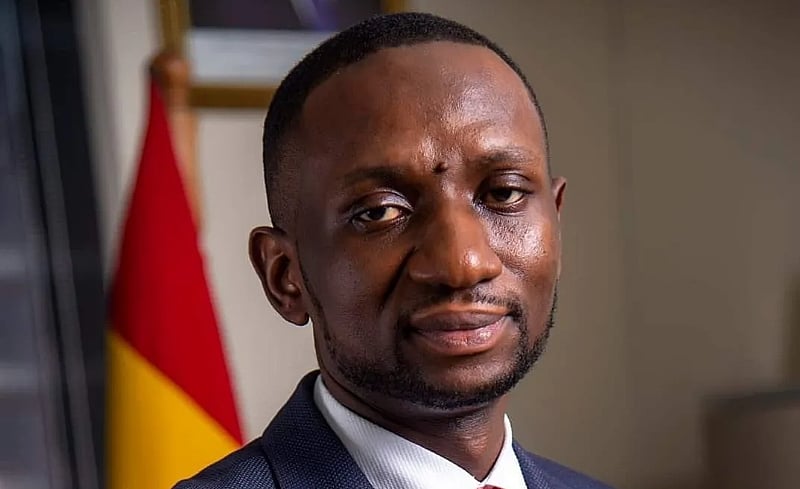The political landscape in Ghana is heating up as the ruling New Patriotic Party (NPP) gears up for its presidential primaries in January 2026. Former NEIP CEO, Kofi Ofosu Nkansah, has recently engaged in a public exchange with supporters of Kennedy Agyapong, a prominent figure vying for the party’s nomination. The catalyst for this exchange was the defection of a constituency secretary from the camp of Dr. Gideon Boako, a known supporter of Vice President Mahamudu Bawumia, to Agyapong’s camp. Agyapong’s supporters, including Kwasi Kwarteng, hailed the defection as a sign of growing momentum for their candidate and a positive indicator for his prospects in the 2026 primaries. Ofosu Nkansah, however, challenged this interpretation, pointing to the departures of key figures from Agyapong’s own camp, including his campaign manager and a business partner, as potentially more significant indicators of his standing within the party. He argued that if the logic of celebrating defections held, then the departure of these individuals should conversely be interpreted as damaging to Agyapong’s campaign.
This exchange underscores the intensifying competition and the strategic use of political rhetoric as the NPP navigates its internal succession process. The defection of a relatively low-ranking official, while potentially symbolic, has been amplified by both sides to serve their respective narratives. Agyapong’s camp is keen to portray his candidacy as gaining traction and attracting support from diverse segments of the party, while those aligned with other contenders, like Dr. Bawumia, are seeking to downplay any perceived shifts in momentum. The public nature of this exchange reflects the high stakes involved in the NPP primaries and the desire of each camp to control the narrative and influence public perception. These early skirmishes offer a glimpse into the likely dynamics of the upcoming campaign, which promises to be highly contested and potentially divisive.
The underlying tension in this exchange is reflective of the broader power dynamics within the NPP. While the 2024 general elections are still on the horizon, with Vice President Bawumia as the party’s flagbearer, the 2026 primaries loom large as a crucial determinant of the party’s future leadership and direction. Kennedy Agyapong, a controversial but influential figure within the NPP, presents a significant challenge to the established hierarchy. His populist appeal and outspoken nature resonate with a segment of the party base, and his campaign is likely to disrupt the traditional power structures. The defection of the constituency secretary, therefore, becomes a symbolic battleground, with each side attempting to leverage it to their advantage in the broader contest for control of the party’s narrative.
The focus on defections and individual endorsements, while commonplace in political campaigns, often overshadows the more substantive issues facing the nation. The NPP, currently in power, faces numerous challenges, including economic instability, rising inflation, and concerns about corruption. The internal competition for leadership risks diverting attention from these pressing issues and potentially jeopardizing the party’s ability to address them effectively. The emphasis on individual personalities and internal power struggles can create an environment where policy debates are sidelined in favor of political maneuvering. This ultimately undermines the democratic process by prioritizing internal party dynamics over the needs of the citizenry.
The upcoming NPP primaries are not merely about selecting a candidate for the 2028 elections. They represent a critical juncture for the party and its future trajectory. The contest between established figures like Dr. Bawumia and those seeking to challenge the status quo, like Kennedy Agyapong, will shape the ideological direction of the NPP and its approach to governance. The outcome of the primaries will also have significant implications for the broader political landscape in Ghana, influencing the dynamics of the 2028 general elections and the country’s political discourse in the years to come. The current exchanges, while seemingly focused on minor defections, offer a preview of the intense political battles that lie ahead.
As the NPP navigates this crucial period, the focus should shift from petty squabbles over individual allegiances to a more substantial debate about the party’s vision for Ghana’s future. The challenges facing the country require thoughtful and innovative solutions, and the NPP must prioritize these issues over internal power struggles. The upcoming primaries present an opportunity for the party to engage in a constructive dialogue about its values, policies, and leadership, ultimately strengthening its ability to serve the nation effectively. The emphasis on individual defections and personal attacks should give way to a more substantive discussion of the critical issues confronting Ghana, ensuring that the internal party dynamics do not detract from the broader national interest.


